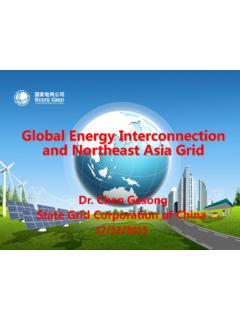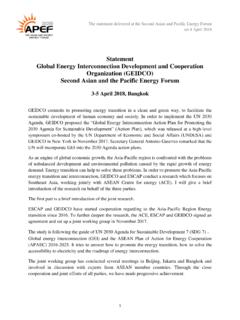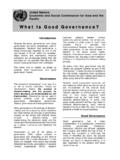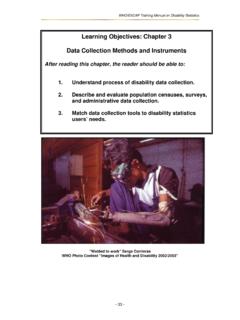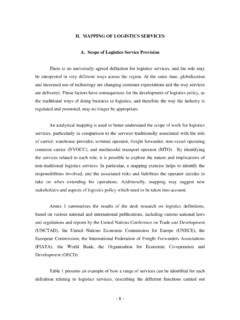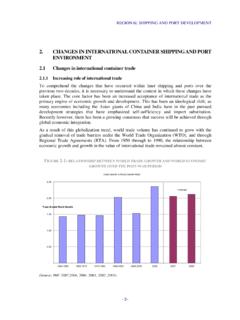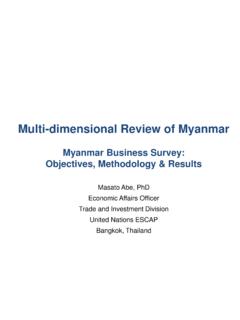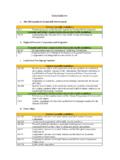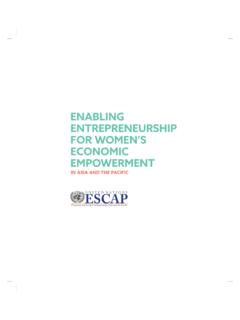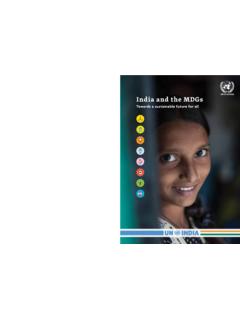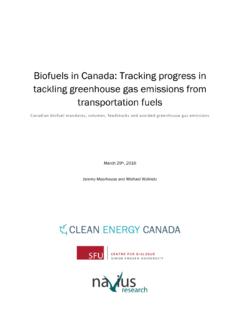Transcription of Asia-Pacific Progress in Sustainable Energy
1 A Global tracking Framework 2017 Regional Assessment ReportAsia-Pacific Progress in Sustainable EnergyCover image Asian Development Economic and Social Commission for Asia and the Pacific (ESCAP) serves as the United Nations regional hub promoting cooperation among countries to achieve inclusive and Sustainable development. The largest regional intergovernmental platform with 53 Member States and 9 Associate Members, ESCAP has emerged as a strong regional think-tank offering countries sound analytical products that shed insight into the evolving economic, social and environmental dynamics of the region. The Commission s strategic focus is to deliver on the 2030 Agenda for Sustainable Development, which it does by reinforcing and deepening regional cooperation and integration to advance connectivity, financial cooperation and market integration. ESCAP s research and analysis coupled with its policy advisory services, capacity building and technical assistance to governments aims to support countries Sustainable and inclusive development ambitions.
2 The shaded areas of the map indicate ESCAP members and associate members.*The ESCAP office is located in Bangkok, Thailand. Please visit our website at for further information. *The designations employed and the presentation of material on this map do not imply the expression of any opinion whatsoever on the part of the Secretariat of the United Nations concerning the legal status of any country, territory, city or area or of its authorities, or concerning the delimitation of its frontiers or Progress in Sustainable Energy : A Global tracking Framework 2017 Regional Assessment ReportUnited Nations publicationSales no. United Nations 2017 All rights reservedPrinted in BangkokISBN: 978-92-1-120768-2eISBN: 978-92-1-362960-4ST/ESCAP/2812 This publication may be reproduced, in whole or in part, for educational or non-pro t purposes without special permission from the copyright holder, provided that the source is acknowledged.
3 The ESCAP Publications Office would appreciate receiving a copy of any publication that uses this publication as a use may be made of this publication for resale or any other commercial purpose whatsoever without prior permission. Applications for such permission, with a statement of the purpose and extent of reproduction, should be addressed to the Secretary of the Publications Board, United Nations, New York. ForEwOrdSustainable Energy will play a central role in building a future based on Sustainable development. Secure, clean and affordable Energy is needed to address poverty, underpin economic growth and social development, while minimizing environmental pollution and mitigating climate change. The centrality of Energy to economic Progress , human welfare and environmental well-being is acknowledged by the 2030 Agenda, which includes a dedicated goal on Sustainable Energy incorporating targets for renewable Energy , Energy efficiency and Energy access.
4 In support of this goal, the Global tracking Framework (GTF) offers a valuable tool for policymakers and stakeholders to take stock of how the Asia-Pacific region is progressing on shared goals in the areas of Energy access, Energy efficiency, and renewable Energy . This report is the result of collaboration between agencies under the GTF consortium and offers a detailed overview of the results achieved to date. It highlights examples of positive actions and Progress , and pinpoints areas requiring additional are significant challenges in realizing these goals. Across the Asia-Pacific , an estimated 420 million people lack access to electricity and nearly half the region s population still relies on polluting and unhealthy cooking fuels and technologies. Significant Energy access disparities exist between rural and urban populations. Rural populations, in particular, women and children, bear the largest burden of Energy poverty.
5 Though much Progress has been made, particularly in rural electrification, bridging the remaining gaps are difficult, calling for a focus on implementation by the region s are continually reminded of the consequences of air pollution and climate change in our region, which are primarily the result of our reliance on fossil fuels. Renewable Energy is a key solution to these challenges. The Asia-Pacific region leads the world in renewable Energy installation. Yet further efforts are needed to expand the role of renewable Energy within the Energy mix. Greater investment, a supportive policy environment and innovative business models are needed to accelerate the transition towards a cleaner Energy efficiency holds enormous promise to both decarbonize our Energy systems and drive more productive economies. Over the past decade, the region has made significant Progress in decoupling Energy demand from economic output through Energy efficiency, with significant advancements occurring in the industrial sector.
6 Innovative technology has been developed, with countries such as China and Japan acting as global leaders. Nonetheless, Asia and the Pacific remains one of the most Energy -intensive among the global regions, and the uptake of Energy efficiency measures varies greatly among member the scale and complexity of the challenges facing Sustainable Energy , regional cooperation is instrumental in developing comprehensive, integrated and durable solutions. Countries of the region have already demonstrated their capacity for cooperation. In 2013, ministers convened the first Asia Pacific Energy Forum (APEF), which set an ambitious Sustainable Energy agenda, exhibiting the leadership of regional policymakers. Since then, regional momentum has been building with the addition of interlinked objectives and commitments made under the 2030 Agenda for Sustainable Development and the Paris Agreement.
7 In 2017, a significant milestone was reached with the establishment of the ESCAP Committee on Energy . A dedicated Asia-Pacific intergovernmental platform on Energy was created. In April 2018, the second APEF will be held to review and shape the regional Energy agenda. iThis regional analysis under the Global tracking Framework report plays a key role in assessing the efforts and Progress in the three critical areas of Sustainable Energy , helping policymakers identify the most urgent areas for region needs to work towards providing all people with vital Energy services; and to fast track a transition towards low-carbon, nonpolluting Energy , with increased Energy efficiency. ESCAP as the regional arm of the United Nations in the Asia-Pacific region, will continue to provide a platform that brings governments, development partners, civil society and the private sector together.
8 We strive to build new partnerships and strengthen ongoing collaborations, including with our regional partner, the Asian Development Bank, to support our members in their efforts. I believe this report provides a practical contribution to regional dialogue among the many stakeholders who will contribute to the realization of our shared vision for Sustainable Akhtar Under-Secretary-General of the United Nations and Executive Secretary, United Nations Economic and Social Commission for Asia and the PacificA Global tracking Framework 2017 Regional Assessment ReportAsia-Pacific Progress in Sustainable EnergyiiExecutive SummaryProgress in access to Energy : electrificationKey Figures More than 421 million people, or per cent of the Asia-Pacific population, remained without access to electricity in 2014. 389 million of those are located in rural areas.
9 Between 2012 and 2014, an estimated million people in Asia and the Pacific gained access to electricity as the population grew by million. The regional rate of electrification rose to per cent, up from per cent in 2012, though national rates are varied widely. Urban areas are gradually approaching universal access, at per cent in 2014, while rural areas have stagnated in that regard, at per cent since 2012. In the period 2012-2014, China, India and Pakistan each added between 13 and 16 million people to their populations with access to electricity. Afghanistan, Bangladesh, Indonesia, and the Philippines extended electricity service to between five and nine million people. Sustainable development is impeded by Energy poverty, which is experienced by a large portion of the Asia-Pacific population. Countries of the region are working to bring electricity to their growing populations in order to support social development and economic growth.
10 In recent years countries have established clear policy targets that are increasingly backed by supportive programmes and economic to the GTF data, China achieved universal access in 2014. During the period 2012-2014, Afghanistan, Bhutan, Cambodia, the Lao People s Democratic Republic, the Marshall Islands and Nepal reported some of the region s most rapid Progress in raising their electrification rates. Approaches varied, but countries such as Cambodia and the Lao People s Democratic Republic combined grid extensions with broad solar home system distribution efforts to boost rural electrification. Other countries, such as India and Nepal, have demonstrated the potential for microgrids to offer higher quality and economically Sustainable off-grid power. Public-private and public-civil society partnerships have also emerged, pioneering new models to incorporate the latest technologies and approaches to off-grid renewable power systems.
